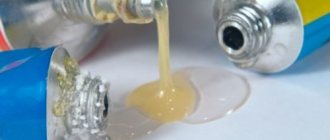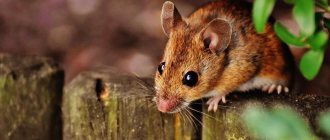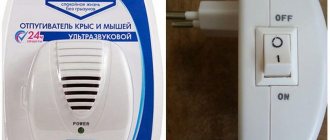There are so many things summer residents have to fight for the quality of their harvest! But no matter what measures are taken, there is someone nearby who just dreams of nibbling carrots or potatoes in the pantry, ruining the flowers in the flowerbed, or doing some other damage. In general, mice do not sleep.
Trying to fight these rodents, summer residents use any means - using strategic thinking, setting up different types of mousetraps and generously scattering poison in the corners.
To some, these methods of getting rid of the mouse “army” will seem inhumane. In addition, pets or children can be harmed by mousetraps and toxic substances. And this should not be allowed under any circumstances. Therefore, you can try a relatively peaceful way to drive mice away from your area - with the help of plants. Some types of plants can be used to prepare poisoned bait, and some can scare away uninvited tailed lovers of other people's crops with their smell or the presence of thorns.
And what kind of plants are these?
Daffodils
More precisely, not the flowers themselves, but their dug up bulbs. To protect plantings of root crops (potatoes, carrots) from mice, in the summer they dig up daffodil bulbs and distribute them over the entire area of the beds, mixed with coriander stems, and then cover them with mulch.
Daffodils are able to protect against mice and their bulbous “colleagues in the flowerbed” - tulips. Mice are always ready to taste their bulbs. To protect these flowers, daffodil bulbs of low-growing species are planted around the tulip bed in the fall.
Seeds in the war for housing
Considering the cleanliness of mice, clinging parts of plants can be used. Rodents are afraid of the seeds of blackroot, thistle and tripartite. If it gets on their fur, it will be impossible to get rid of. Once they catch the seeds, the pests will leave the home.
You should not scatter seeds throughout the house. They are placed only in those places where there are minks, so that animals do not want to go through them.
Burdock
Rodents hate burdock. Its inflorescences will help in the war for housing. Once caught in the burrs, the mice die because they cannot free themselves. Surviving animals leave the premises forever. And if you plug the holes through which rodents enter with inflorescences, then even rats will not be able to get into the house.
Plant baits
If mice do not want to leave your area in an amicable way, it is time to move on to a more severe means of control - baits.
The plants from which baits are made are very poisonous. Don't forget about safety precautions.
Here are some bait recipes:
- grind crow's eye rhizome (5 g) and sunflower seeds (100 g);
- prepare powder from tubers of aconite antidote (50 g) and mix it with 1 kg of cereal or flour;
- prepare an infusion of Lobel's hellebore rhizomes. This remedy for getting rid of mice is prepared as follows: 100 g of rhizomes are kept in 200 ml of water for 4-5 days, adding a little hydrochloric acid to the decoction. Then grain is poured into the finished infusion and waited until it swells;
- Grind the castor bean seeds and mix them with unrefined vegetable oil.
Baits are placed in places accessible to mice. Rodents will happily eat foods diluted with poison (flour, cereal, sunflower seeds, grain), and after such a treat you are unlikely to see uninvited tailed guests on your site.
All means are good in the fight against mice. However, many summer residents want to solve this problem in a civilized way. For example, drive away mice with plants.
Do you have your own proven means of combating these rodents? Share in the comments!
Herbal essential oils
In pharmacies you can buy essential oils that are prepared from herbs. The aroma from the essential oil will be stronger and richer than from fresh or dried herbs. It will be felt longer.
It is known that rats are afraid of the smell of peppermint essential oil. The same goes for mice. The oil is dripped onto cotton pads or napkins and placed in the corners of the rooms.
You can drop a few drops into the water before washing the floors. The smell will be felt throughout the house, so you shouldn’t overdo it. The pungent aroma causes headaches and dizziness.
In addition to mopping the floors, you can diffuse essential oil from a spray bottle. To do this, drop from 1 to 15 drops of oil into 300 ml of water and add 10 ml of alcohol. The mixture is applied wherever animals may be.
Special aroma lamps are sold in stores. The essential oil evaporates along with the smoke, and the smell penetrates into all the cracks.
Direct contact of the animal with the oil must be avoided. If it gets on the fur of a rodent, it will lead to death. For lovers of humane methods of elimination, murder is definitely not suitable.
Others
In addition to smells, you can try to repel rats and mice with other methods. To do this, you need to know what rodents are really afraid of, and what causes them minor inconvenience and can only make them move away for a while, but not leave their homes.
Light
In a normal situation, rats are active mainly in the dark. This is due to the fact that animals see better in the dark, and in addition, at night the risk of meeting their main enemy - humans - is much less. However, to the question of whether rats are afraid of light, the answer is likely to be negative.
Rodents very quickly get used to constant lighting. There is plenty of evidence of rats hunting or searching for food during the day. Therefore, it is possible that the animals will behave more cautiously at first, but the bright light will definitely not make them leave.
Loud sounds
As for sounds, the situation is similar to scaring with bright light. Rats are really afraid of noise, but only until it becomes familiar to them. After this, they will perceive it as an unpleasant background that will not interfere with leading a normal lifestyle, and then they will stop perceiving it altogether.
Moreover, scaring away rodents with loud sounds is very inconvenient for owners. Constant noise will cause discomfort, displease neighbors, and besides, it will still have to be turned off at night.
Water
Mice don’t really like water, but rats feel comfortable in it, in nature they settle along the banks of reservoirs, swim well and even fish. But even about mice it cannot be said for sure that they are so afraid of water that they will leave the room because of its presence. Yes, and then it is very difficult to imagine how water can be used to repel rodents. It is unlikely that any of the owners will flood the floors in the house with water or deliberately dig a pond on the property.
Cat
Cats are natural enemies of rodents. Therefore, most often, rats and mice try to stay away from places where they clearly sense traces of the vital activity of mustachioed pets. But there are nuances here too.
If we are talking about a pampered pet who has never hunted and does not show any desire to start doing it, then the rodents will gradually get used to his presence. Over time, they will begin to behave more and more impudently, carry cat food, and may even scare a particularly impressionable cat.
Hunter
Elder
Herbs against rodents A well-known folk remedy is elderberry for mice. People have known about the unique properties of the bush for a long time. Elderberry has repellent and mild insecticidal properties. Rodents cannot stand the unpleasant odor emanating from the branches and the hydrocyanic acid that elderberry roots secrete, and therefore avoid the tree.
On a note!
According to experienced gardeners, harmful insects do not settle near elderberries. Therefore, in order to clean the room from pests, it is necessary to place elderberry branches in the house.
Is ultrasound effective?
Specialized stores offer ultrasonic devices that, according to manufacturers, repel rodents. Indeed, rats and mice perceive ultrasound, and certain frequencies cause anxiety and even panic in them. This option is considered by many to be the most acceptable, but to ensure results, several factors must be taken into account:
- purchase high-quality and powerful devices, avoid useless counterfeits;
- the device must distribute sound evenly in all directions;
- It is desirable that the ultrasound frequency changes automatically, so it will be more difficult for rodents to get used to it.
You should also remember the disadvantages.
- Firstly, despite the fact that people do not hear high-frequency sounds, prolonged exposure to radiation can cause deterioration of health and headaches for some.
- Secondly, ultrasound is heard by hamsters, dogs and cats, so the device can both scare away rats and cause discomfort to pets.
Prevention of rats
Unfortunately, simply keeping the house tidy and clean is not always enough. To protect your home from rodents, try attaching a fine grille to all ventilation ducts, and also seal all the cracks and seal the water supply system. It is best to store food in containers with tight lids, and dispose of garbage as quickly as possible so that pests do not have access to food.
You can take action already at the stage of laying the foundation of your private house or cottage - install a fine-mesh mesh vertically in the cement and seal all small holes.
If you live in an apartment, remember that many of the listed herbal products can be grown even on the balcony and used both to scent the room and to repel rats.
Sagebrush
Wormwood is no less effective against mice. The protective properties of the herb known to many people lie in the bitter-tart aroma with which it is endowed. Our ancestors also layered sheaves of grain with dried wormwood to protect against mice. Many summer residents still use wormwood today, girding tree trunks in the garden with it for the winter, since mice can gnaw the bark of apple trees, or lining pantries with food supplies with small bunches of grass.
Behavior of rodents when the ultrasonic device is turned on
Experiments show that when the device is turned on, mice immediately tend to leave the room in panic. During the experiments, they rushed around the cage, threw food and water, and hid in far corners. In life, rodents may try to hide in places protected from sound, but they often run away.
A mouse infestation is an unpleasant and dangerous situation, and it is important to act quickly. Humane repelling of rodents involves using ultrasound or a strong odor that mice are afraid of. You can use dry and fresh herbs, essential oils and spices, and plant certain plants on the site.
Natural flavors
Animals that hunt mice will help solve the problem. You can get a cat. The smell alone will scare the pests and they will leave the room.
If this is not possible, it is possible to simulate the presence of a cat. It is appropriate to use used cat litter. They sprinkle it on the corners and entrances to burrows. They also use rags soaked in cat urine.
Faster results can be achieved by imitating snakes and rats. For the former, mice are food, for the latter, they are competitors in the struggle for food sources. A small amount of snake and rat excrement will repel pests. They are placed in the place where the rodents appeared. You can get excrement at any pet store.
The effectiveness of the repellent method
It’s worth saying right away that opinions differ regarding the effectiveness of the scaring method. There are those who support this method and talk about good results, but there are also those who say that it is completely ineffective.
But despite the controversial issues, for a long time people have been using a variety of aromatic herbs and remedies that can drive rats away from the territory.
In many ways, the effectiveness depends on the correct use of a particular product. You need to understand how the substance can affect the rodent and what results to expect.
Repellent substances are not capable of destroying pests; they are intended to make the animal feel uncomfortable and create the most unfavorable living conditions so that they want to leave the house.
Forest mint and peppermint
Even children know about the beneficial properties of mint. The herb has antiseptic, antispasmodic, and analgesic properties. It is used in the food, confectionery and perfume industries, as well as in folk medicine.
The grass is also good at repelling mice and rats.
Interesting!
If mint beds grow around a country house, rodents will avoid the area. House ants, moths and mosquitoes are also afraid of the mint aroma. To prevent pests from bothering you, you just need to place pleasantly smelling mint sprigs in the room.
Folk remedies
For hundreds of years, people have noticed what rats and mice are afraid of; based on these observations, an impressive list of folk remedies has emerged that help get rid of rodents. Most popular recipes:
- the smell of burnt rubber;
- spices (cloves, hot chili pepper, coriander, sage);
- naphthalene;
- garlic;
- the smell of burnt fur;
- tobacco.
Tobacco
But as practice shows, it is not always possible to scare away rats using folk remedies. Each case is individual. For example, one housewife's rodents will be frightened by the smell of garlic, while another will eat some of the cloves and put the rest in a neat pile. And mustachioed pests get used to the aroma of spices quite quickly.
Why is it necessary to fight rats?
The main thing that should not be forgotten is that rats reproduce very quickly, so you need to start fighting them as quickly as possible. In a year, one female alone can bring about a hundred new small pests into your home. They cause significant damage to property, destroy and spoil food, and transmit many dangerous diseases. Imagine how much the damage caused by these rodents will increase if there are more and more of them in your home. And it will become much more difficult to get rid of them.











